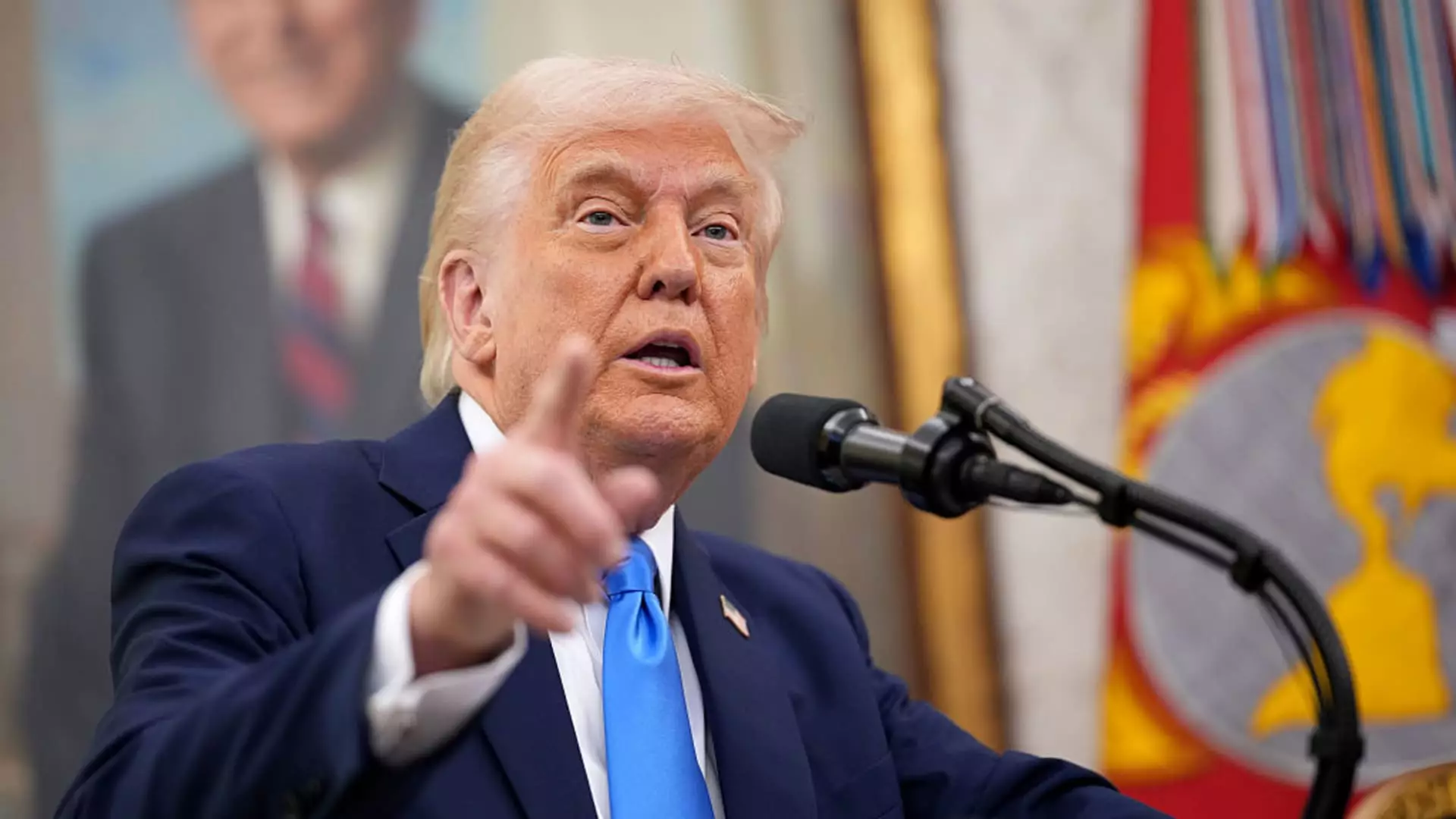As uncertainty hovers over the global economic landscape, President Donald Trump is set to announce an expansive batch of tariffs that threatens to further scorch an already volatile trade environment. Dubbed as America’s “liberation day” and hyped as “the big one,” this initiative has ignited a firestorm of debate around its potential implications. What’s clear, however, is that the impending tariffs will undoubtedly create an uneven burden on foreign trade partners, leaving many to suffer while the effects ripple through the global economy.
The Mystery of the “Reciprocal Tariffs”
Details regarding the forthcoming tariffs remain shrouded in a fog of ambiguity. Will every trading partner be caught in the crossfire, or will certain nations be targeted more than others? The lack of clarity raises alarms among economists, businesses, and policymakers alike. While Trump and some administration officials, such as Treasury Secretary Scott Bessent, hint at a narrowed focus on the so-called “Dirty 15,” they sidetrack the conversation with vague references rather than concrete identifications. What we witness here isn’t merely a proclamation of economic policy; it’s a convoluted narrative that leaves stakeholders frustrated and anxious.
The ostensible aim is to combat what the administration perceives as unfair trade practices. However, the concept of “reciprocal tariffs” is riddled with complexities that can easily be misconstrued, leading to retaliatory measures from affected countries. We must ask: does this really foster a healthier trade environment, or is it a harbinger of economic fragmentation?
The Tug-of-War Over Trade Deficits
At the heart of Trump’s position is the ever-controversial concept of trade deficits. He postulates that America is being exploited by other nations, leading to calls for aggressive tariff measures. Yet, many economists challenge this narrative, asserting that trade deficits are not inherently negative. Instead, they may reflect a robust domestic appetite for diverse goods. If the narrative that trade deficits are positioning the U.S. at a disadvantage continues to hammer away at public consciousness, how much ground will we cede to economic philosophical oversimplification?
It’s important to note that historical data don’t support the notion that tariffs decisively correct trade deficits. Instead, they often result in elevated consumer prices and strained relationships with trading partners, jeopardizing sectors that rely heavily on international supply chains.
The Troubling Broader Implications
Trump’s escalating tariffs form part of a larger pattern of economic nationalism that threatens to dismantle decades of progress in global trade partnerships. This strategy not only has potential long-term repercussions for the U.S. economy but also risks inciting retaliatory tariffs from key economic allies. As countries retaliate against U.S. exports, jobs could be lost, prices could increase, and consumer choice could shrink.
The oddity of this approach lies in its potential to undermine the very foundation of American prosperity that Trump claims to champion. For years, American consumers have enjoyed the benefits of low-cost imports, and as tariffs rise, one must wonder: who truly benefits? When our wallets feel the pinch as prices rise, will the administration take responsibility, or will it deflect blame onto foreign adversaries?
The Future: A Call for Rational Discourse
The path forward appears fraught with consequences, and a rational discourse on trade policy is crucial. We need to engage in discussions that go beyond slogans and superficial solutions, emphasizing collaboration rather than confrontation. While tariffs are painted as tools for rectifying perceived inequities in trade, a more nuanced understanding of global economics may reveal that cooperation could yield far better results for all involved.
In the end, it’s imperative to prioritize strategies that foster mutual understanding and economic resilience rather than swinging the eraser of economic isolationism hard across the canvas of global trade. As we await the impending announcement, one can only hope that clarity and rationality will eventually prevail in this chaotic saga.

